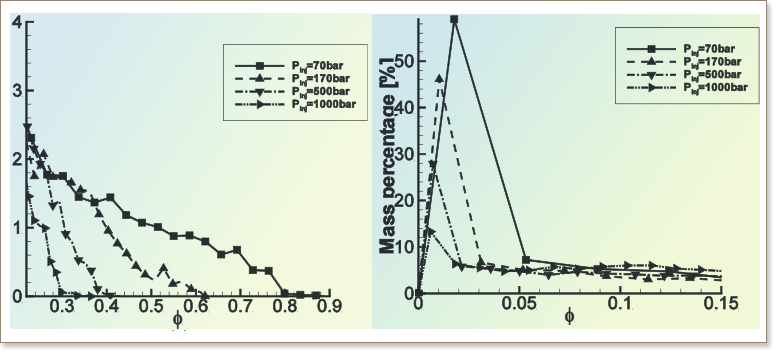

Effects of fuel injection parameters on the performance of homogeneous charge compression ignition at low-load conditions
S. H. Keum, P. Pal, H. G. Im, A. Babjimopoulos, D. N. Assanis
International Journal of Engine Research, 1468087415583597, (2015)

With the objective of enhancing the effectiveness of late fuel injection strategy in extending the low-load limit of homogeneous charge compression ignition engines, a numerical study is conducted to investigate the effects of fuel injection parameters, such as the injection pressure and spray cone angle, on the overall combustion efficiency and CO/NOx emissions. Closed-cycle engine simulations are performed incorporating detailed iso-octane reaction kinetics and combustion submodel based on the spray-interactive flamelet approach. Extensive parametric studies are conducted to provide a detailed map of the combustion efficiency and emission performance. In general, it is found that the in-cylinder charge stratification can be reduced by both an increased injection pressure and a wider spray cone angle, resulting in substantially lower NOx emissions and reasonably high combustion efficiency simultaneously. The present study demonstrates that an optimal adjustment of the two fuel injection parameters can result in significant extension of the low-load limit of homogeneous charge compression ignition through delayed fuel injection strategy.